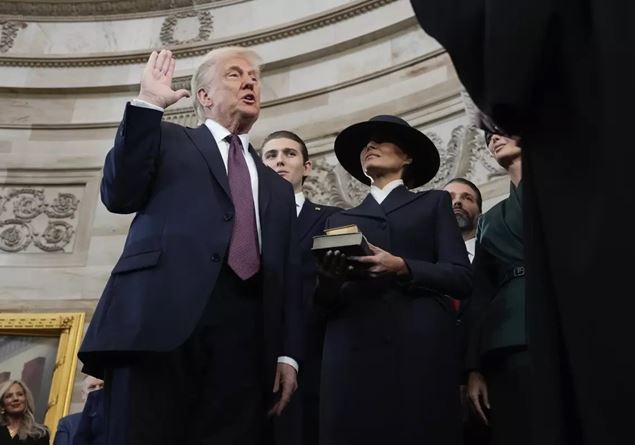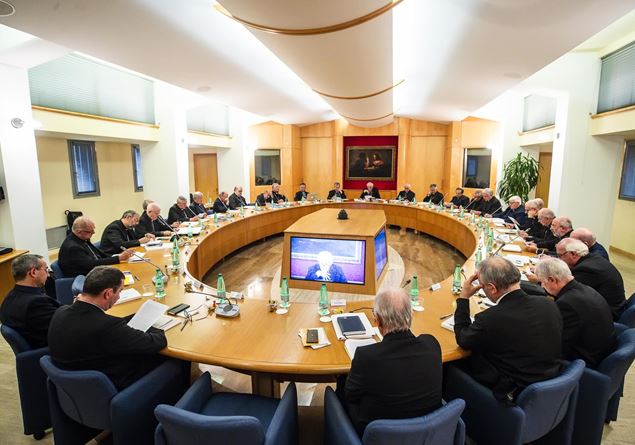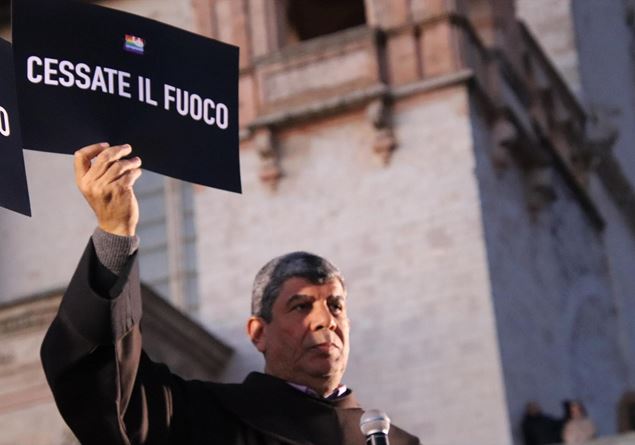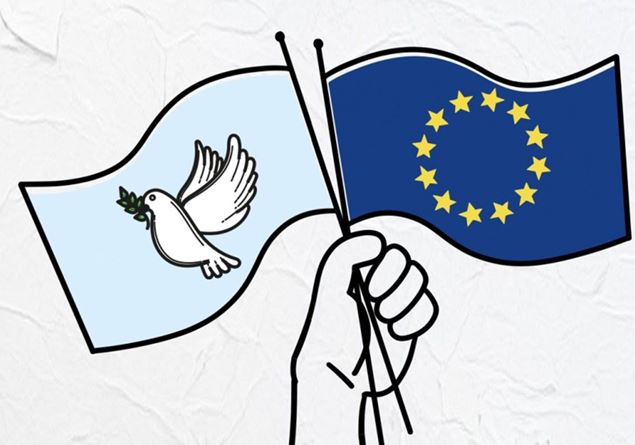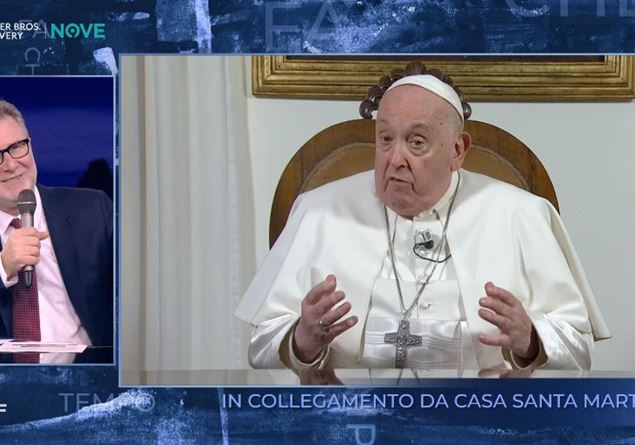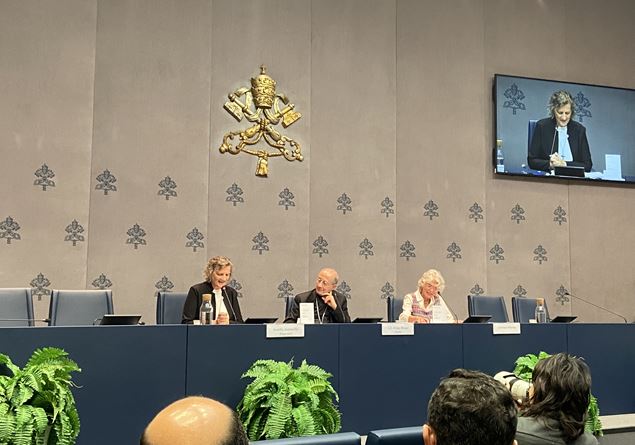
In a world in which “everything is bought and paid for, and it seems that the very sense of dignity depends on things that are obtained with the power of money” and in which “we are only driven to accumulate, consume and distract ourselves, imprisoned by a degrading system that does not allow us to look beyond our immediate and petty needs” the Pope bursts in with a message of hope. With his encyclical “Dilexit nos” on the human and divine love of the Heart of Jesus Christ recalls that that love «is outside this perverse mechanism and He alone can free us from this fever in which there is no longer room for gratuitous love. He is able to give a heart to this land and to reinvent love where we think that the ability to love is dead forever.” It draws on Heidegger and to John Paul II, to a saint Margherita pizza and to Virgil, to Dante’s Vita Nova taking up the verses «I say that thinking of its value Love makes me feel so sweet, that if I didn’t lose courage then, I would make people fall in love by speaking», to repeat the words «love» 272 times and the «heart» 463 times .
It is the encyclical, presented in the Vatican press room by sister Antonella Fraccaro and the theologian Bruno Forte, of a man in love with God and humanity that Francis delivers to the world to tell everyone that yes, “God loved us” and continues to do it despite all our mistakes. Pope Bergoglio’s fourth (but the first, Lumen fidei, of 29 June 2013, had already been almost completely written by Benedict XVI), completes the circle with Laudato Sì of 24 May 2015 and with Fratelli tutti of 3 October 2020. He expressly recalls them, in number 217, writing that «what this document expresses allows us to discover that what is written in the social encyclicals Laudato si’ and Fratelli tutti is not foreign to our encounter with the love of Jesus Christ, because, by drinking to this love, we become capable of weaving fraternal bondsto recognize the dignity of every human being and to take care of our common home together.”
Returning to the themes dear to him, retracing the Sacred Scriptures and the cult that developed on the Sacred Heart and, above all, in view of the Jubilee event, the Pontiff, in the document, invites us to reflect on the importance of love and hope. How important it is to be supportive in today’s time. It reminds us that we need to build a more just and fraternal world by counting on dialogue and collaboration with other religions and with all men and women of good will. For face global challenges together, from poverty to the environmental crisis to growing inequalities.
Taking inspiration from 350th anniversary of the first manifestation of the Sacred Heart of Jesus in Santa Margherita Maria Alacoque, which opened a year dedicated to the Sacred Heart which will end on June 27, 2025, the encyclical underlines that «to express the love of Jesus the symbol of the heart is often used. Some wonder whether it still has a valid meaning. But when we are tempted to navigate on the surface, to live on the run without ultimately knowing why, of become insatiable consumers and slaves to the gears of a market that is not interested in the meaning of our existence, we need to recover the importance of the heart». More than that, we need to deal with ourselves, to look inside ourselves without pretense. «Mere appearance, dissimulation and deception damage and pervert the heart. Beyond the many attempts to show or express something that we are not, everything is played in the heart: there it doesn’t matter what is shown on the outside or what is hidden, there we are ourselves. And this is the basis of any solid plan for our life, since nothing worthwhile can be built without the heart. Appearances and lies offer only emptiness”, writes Francis. And he uses an anecdote from his childhood about his grandmother who, for carnival, fried pancakes which, being thin dough, swelled in the pan, but then, when eaten, they were empty. «Those pancakes in dialect were called “lies”. And it was the grandmother who explained to us the reason: “These pancakes are like lies, they seem big, but they have nothing inside, there is nothing true, there is nothing of substance”».
With the encyclical the Pope instead wants to bring us back to the truest substance, to that love of Jesus which was experienced not only by Saint Margaret, but by Saint Teresa of the Child Jesus, Mother Teresa of Calcutta, Charles De Foucauld, Saint Faustina Kowalska, Ignatius of Loyola…
It is not an abstract love, but one made of concreteness, as the encyclical specifies in the second of the five chapters of the encyclical, the one dedicated to “Gestures and words of love”. The meeting with Nicodemus, with the prostitute, with the man born blindthey explain to us who Jesus is, how he approaches us and how we must relate to others. “By watching him act we can discover how he treats each of us, even if we struggle to perceive it”, writes the Pope. And he invites: “Let us then look where our faith can recognize him: in the Gospel”. We will then discover that we believe in a God who holds out his hand to us, even if we don’t trust him after so many betrayals and wounds. «We can doubt many people, but not Him», the Pope tells us. «And don’t stop», he continues, «because of your sins. Remember that many sinners “sat at table with Jesus” (Mt 9:10) and He was not scandalized by any of them. The religious elitists complained and treated him as “a glutton and a drunkard, a friend of tax collectors and sinners” (Mt 11:19). When the Pharisees criticized his closeness to people considered to be of low status or sinners, Jesus told them: “I want mercy and not sacrifices” (Mt 9:13)”.
An entire paragraph then, number 20, is dedicated toartificial intelligence to say that, «poetry and love are necessary to save humanity. What no algorithm will ever be able to accommodate will be, for example, that moment of childhood that is remembered with tenderness and which, despite the passing of the years, continues to happen in every corner of the planet.” The Pope gives familiar examples, «I think of the use of the fork to seal the edges of those homemade panzerotti made by our mothers or grandmothers. It is that moment of culinary apprenticeship, halfway between play and adulthood, in which one takes responsibility for the work to help others. Like this one about the fork, I could mention thousands of small details that make up everyone’s biographies: making smiles blossom with a joke, tracing a drawing against the backlight of a window, playing your first football match with a rag ball, keeping worms in a shoe box, drying a flower between the pages of a book, taking care of a bird that has fallen from the nest, making a wish by leafing through a daisy. All these small details, the ordinary-extraordinary, will never be able to fit into the algorithms. Because the fork, the jokes, the window, the ball, the shoe box, the book, the bird, the flower… rely on the tenderness that is preserved in the memories of the heart.”
An encyclical to read in one sitting and then continue to meditate on. Until the final prayer: «I pray to the Lord Jesus that from his holy Heart rivers of living water may flow for all of us to heal the wounds we inflict on ourselves, to strengthen our ability to love and serveto push us to learn to walk together towards a just, supportive and fraternal world. This will continue until we happily celebrate the banquet of the celestial Kingdom together. There will be the risen Christ there, who will harmonize all our differences with the light that flows incessantly from his open Heart. May he always be blessed!


